latvia is the second country we visit in the Baltic States is. My customers and I are already very excited to see what awaits us here.
This post contains unpaid advertising. This report only reflects my opinion. It also contains affiliate links. If you buy something there, you don’t pay more, but I get a small commission that helps to continue my blog.
Zum deutschen Blogbeitrag. The border between Lithuania and Latvia is barely visible. A border post and that was it. That´s what makes Europe so special! Not for long and we arrive at
Rundale Castle
A huge park surrounds the castle, but the park still needs a bit of love. It looks like it is currently being under construction and hopefully brought back to its original Baroque state. A café is waiting for visitors in the outdoor area.
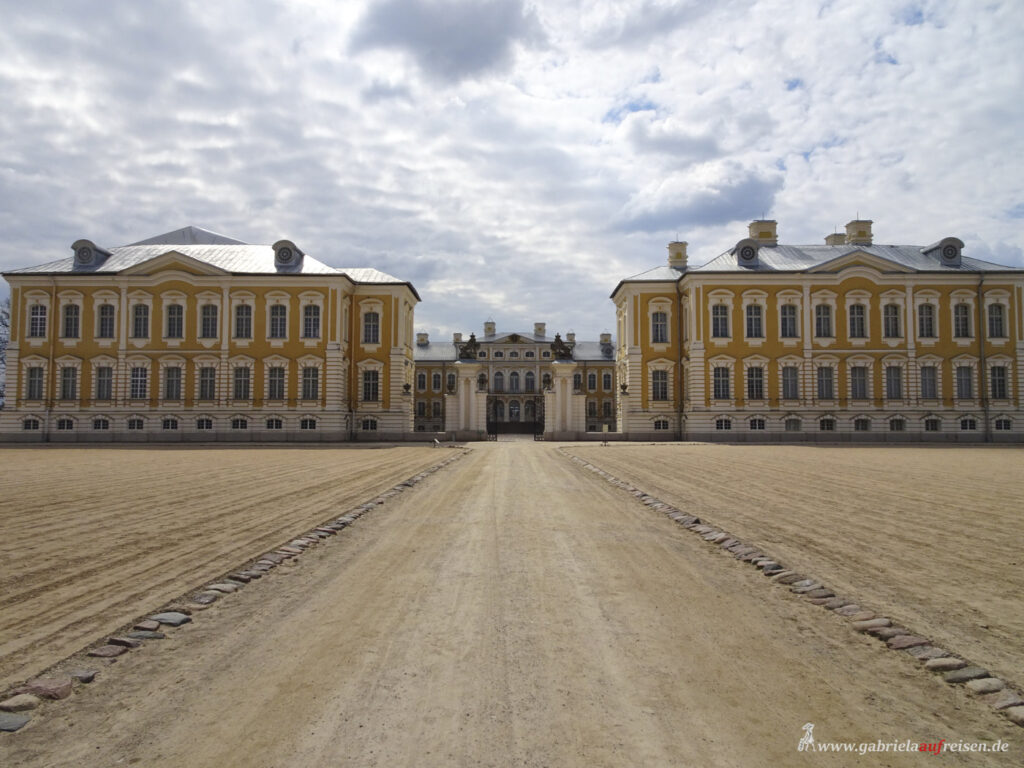
Brief historical overview
Before we enter the large castle courtyard, we walk along the former stables. Very impressive in its size. The Baroque castle itself has three wings and was built from 1736 to 1740 by the favourite of Empress Anna Ivanova, Duke of Kurzeme. The master builder was Francesco Bartolomeo Rastrelli, who also designed the Hermitage in St. Petersburg.
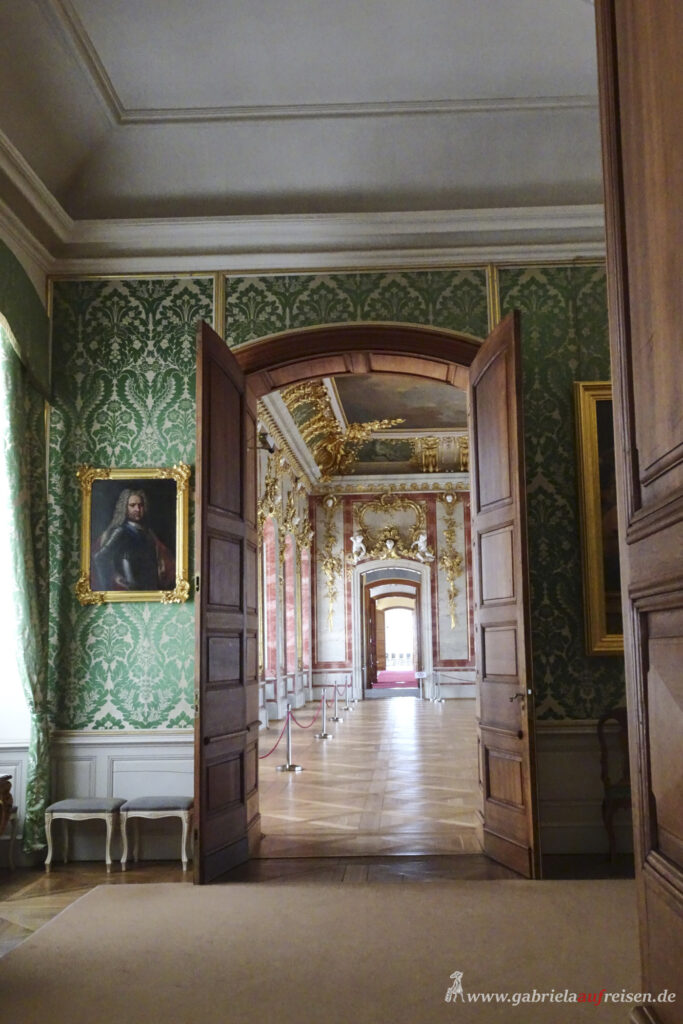
Unfortunately, the duke did not have much time in his summer residence Rundale Castle, as he soon fell out of favor and was exiled to Siberia for life. In 1762 he was rehabilitated and was able to finish the construction of his castle by 1768.
Interiors
Inside I am almost overwhelmed by the sheer splendor! Pure Baroque. I find a lot of gold in the 138 rooms, not all of which can be visited. Unfortunately, not much of the original interior has been preserved. Paintings that used to hang here and were sold, are now being auctioned or bought everywhere, including everyday objects from that time. The castle was a military hospital in the 2nd World War and later a school. One of the small rooms has not been restored but left in the condition of the school. What a difference! No wallpaper or paintings on the walls or ceiling. The beautiful parquet floor repelled and scratched. The tiled stove struck. Here I can clearly see how much effort has been put into the restoration of the castle in recent years.
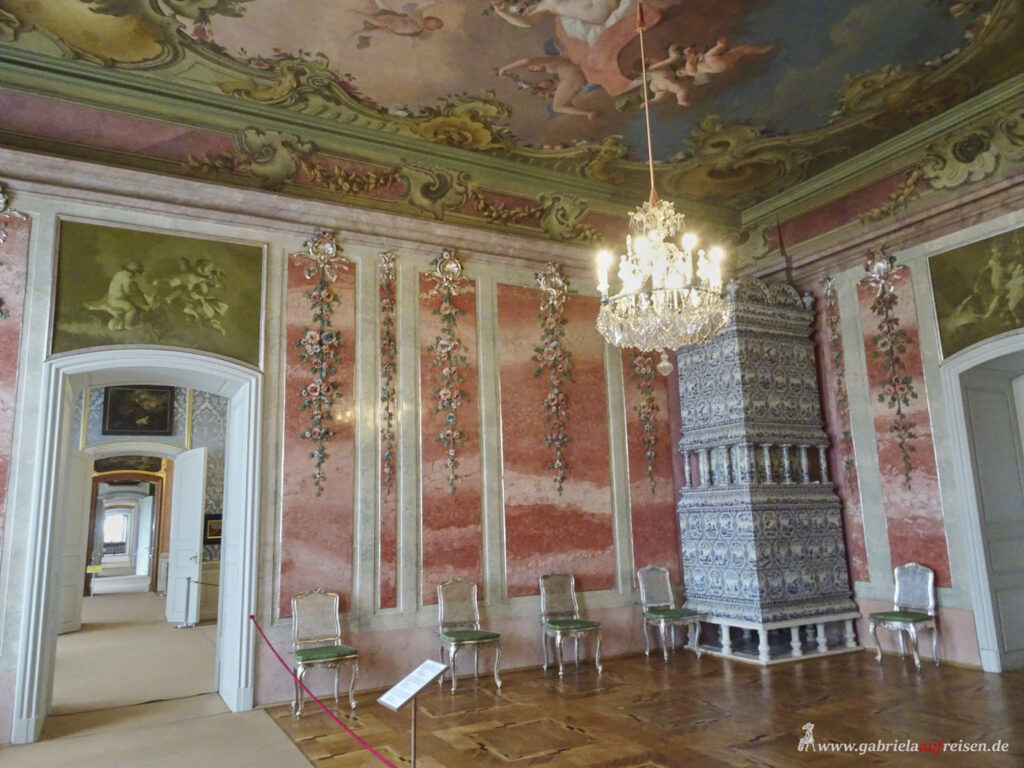
Particularly noteworthy is the ballroom, also called the White Hall, with its beautiful white stucco work on the ceiling. It is deliberately kept simple in white to stage the sumptuous robes of the guests.
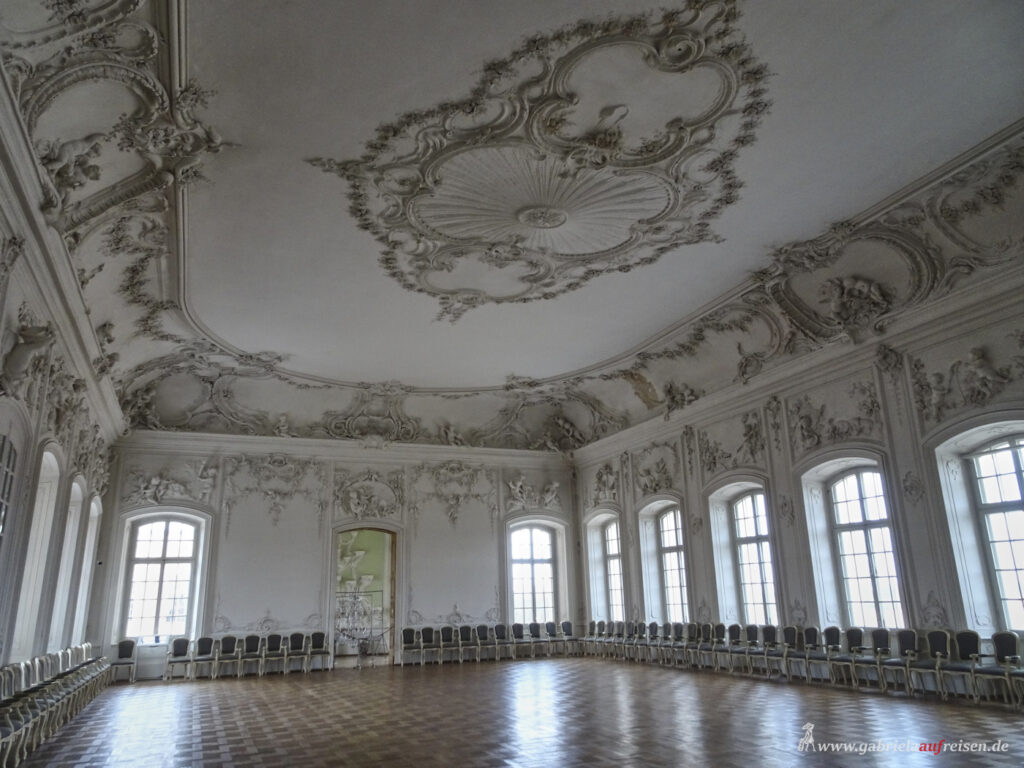
In the west wing the Duchess and other family members resided, in the middle of the castle the Duke and the East Wing was reserved for representation.
Here the weather is still gracious with us, but in the evening, on arrival in
Riga, capital of Latvia
It rains cats and dogs. The Hotel Grand Poet by Semarah is now our home for two nights and stands out pleasantly from the last hotel. It is located directly at the city center, so it is within walking distance to restaurants and the old center. It is very modern inside, the breakfast buffet opulent, I don’t want to get up from it the next morning to start the city tour.
In 1201 the city was founded by a bishop of Bremen and just over 80 years later it was a member of the Hanseatic League. Again and again, the neighboring states fought over this city. Fortunately, the old houses of the city center did not fall victim to these conflicts, so that the old city center has been a UNESCO World Heritage Site since 1997.
Today, Riga is the largest city in the Baltic States with over 650,000 inhabitants.
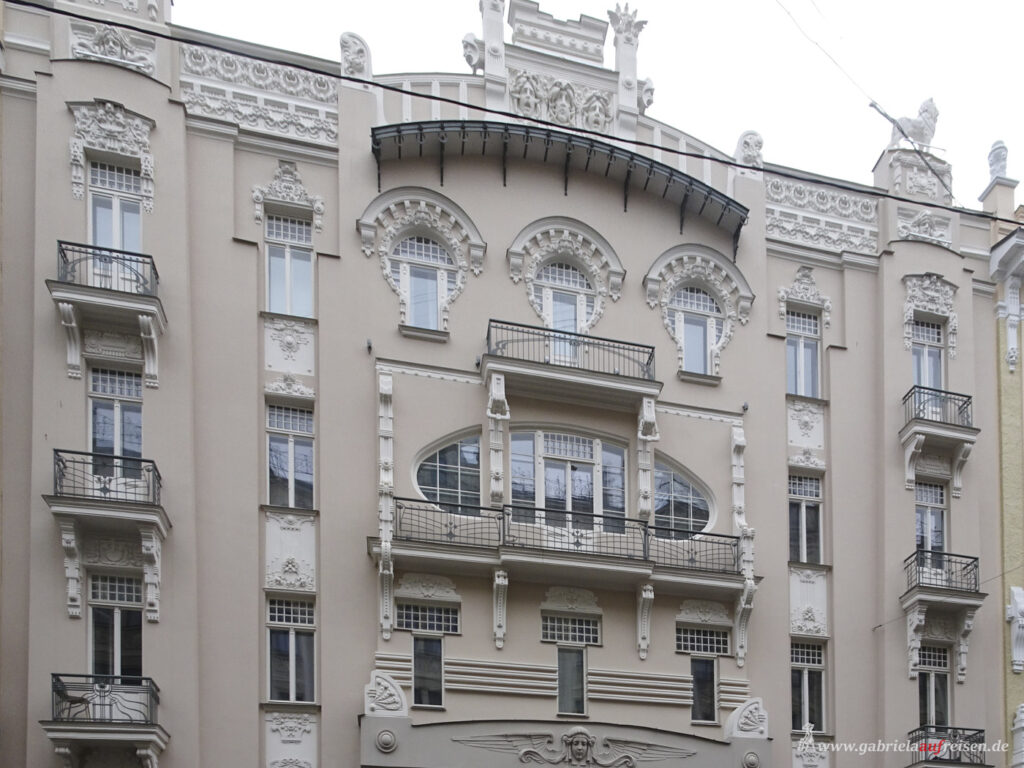
Art Nouveau and wooden houses
Our city tour starts with a ride in our bus, because of course we all want to see the beautifully restored Art Nouveau houses! Unfortunately, the weather god still doesn’t really mean well with us, after all, it’s just drizzling now. The houses are beautiful and still very good to see, as the trees are still bare.
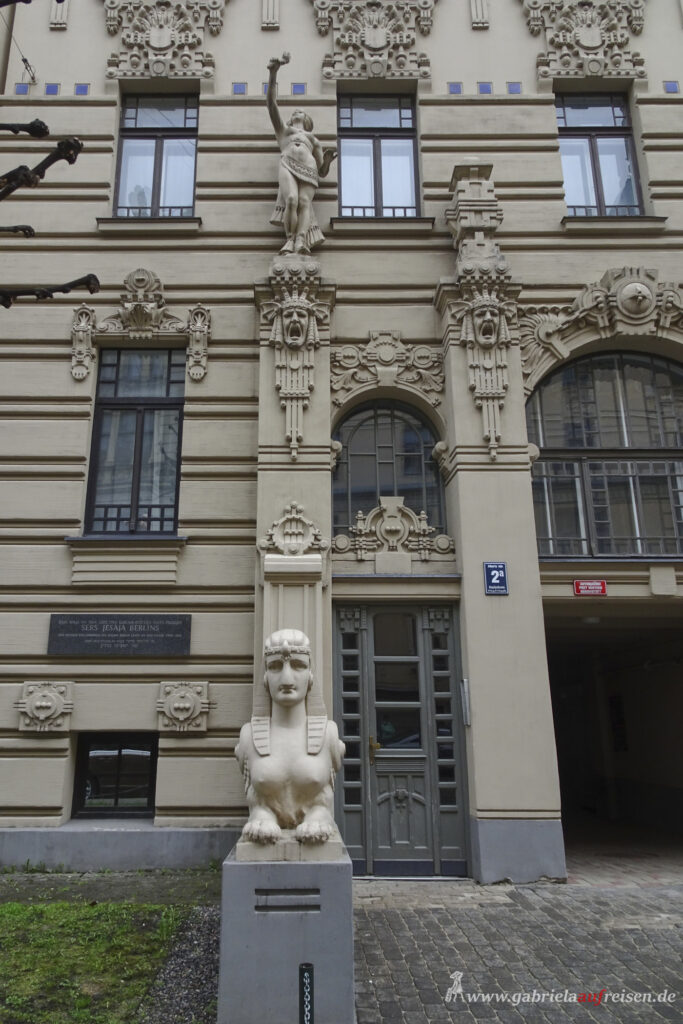
Around 800 of these houses, mostly built in the style of National Romanticism, can still be found in the city centre, many in “candy” colours with incredible façade decoration. About 20 of these houses are attributed to the most famous architect of Art Nouveau, Mikhail Eisenstein.
We continue through the old wooden house district. The contrast to the Art Nouveau houses could hardly be greater. But also this district, which is located on the other side of the River Daugava, which flows through Riga , has its charm and over 2000 of these wooden houses are under monument protection. However, we don’t see much from the bus.
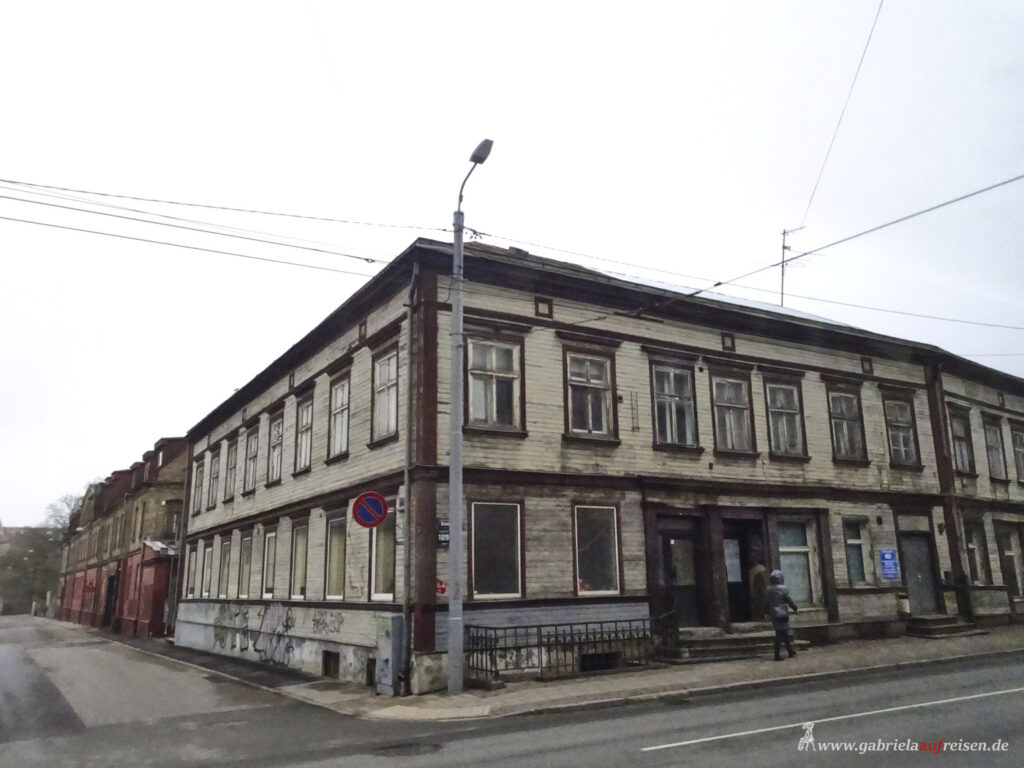
Walking-Tour
Now we have to get out into the rain, which unfortunately is getting more and more violent! The whole tour can be found on Komoot here.
We start by circumnavigating the Bastion hill and we are already standing in front of the Jacobean barracks and the house that contains all the coats of arms of the Latvian municipalities. Since there will soon be a kind of territorial reform, it may be that some coats of arms will then become “superfluous”. Above us rises the old powder tower. It seems grey to me like the sky above us, although it was built of red bricks,.
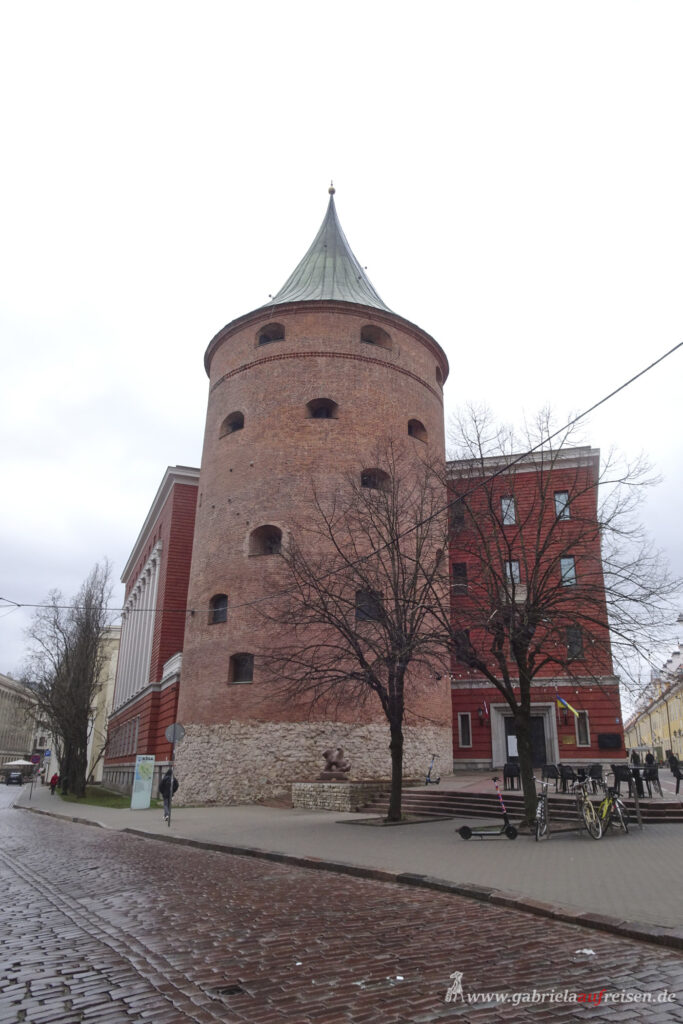
Our city guide walks with us criss-crossing the city center. We pass the Sweden-Gate, pass the St. Jacob’s Cathedral, where a service is currently being held and where we do not want to disturb.
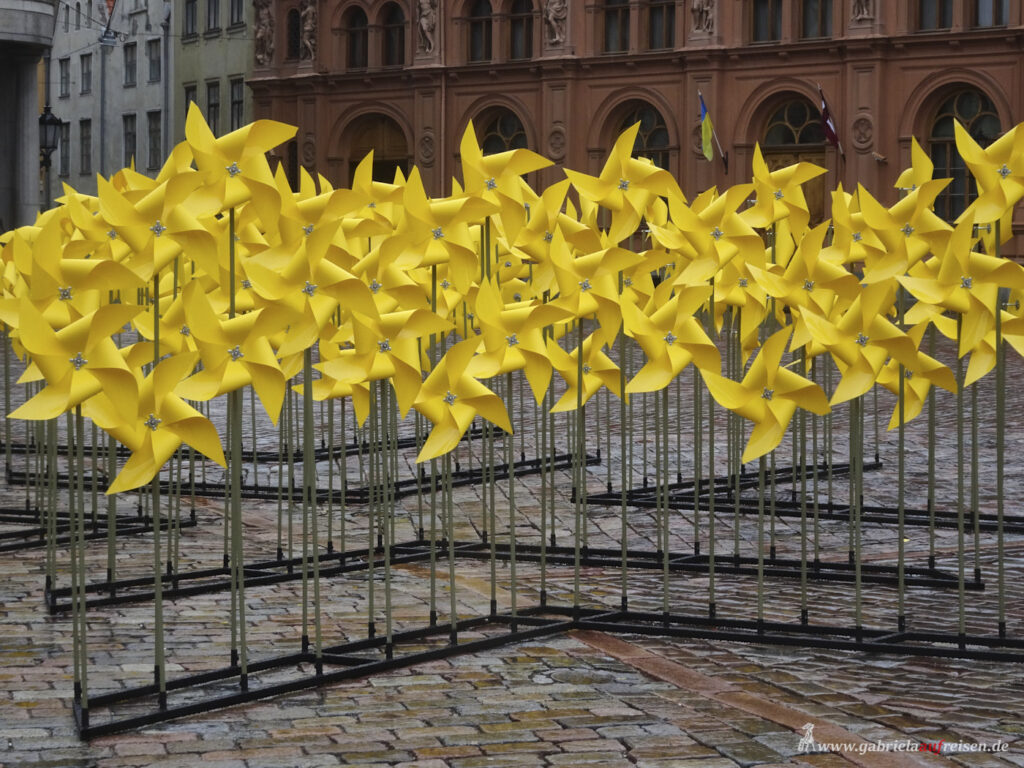
We take a look at the “Three Brothers”, an ensemble of buildings that reminds me very much of my hometown Lüneburg. The right house is said to be the oldest residential building in Riga and was probably built at the end of the 14th century.
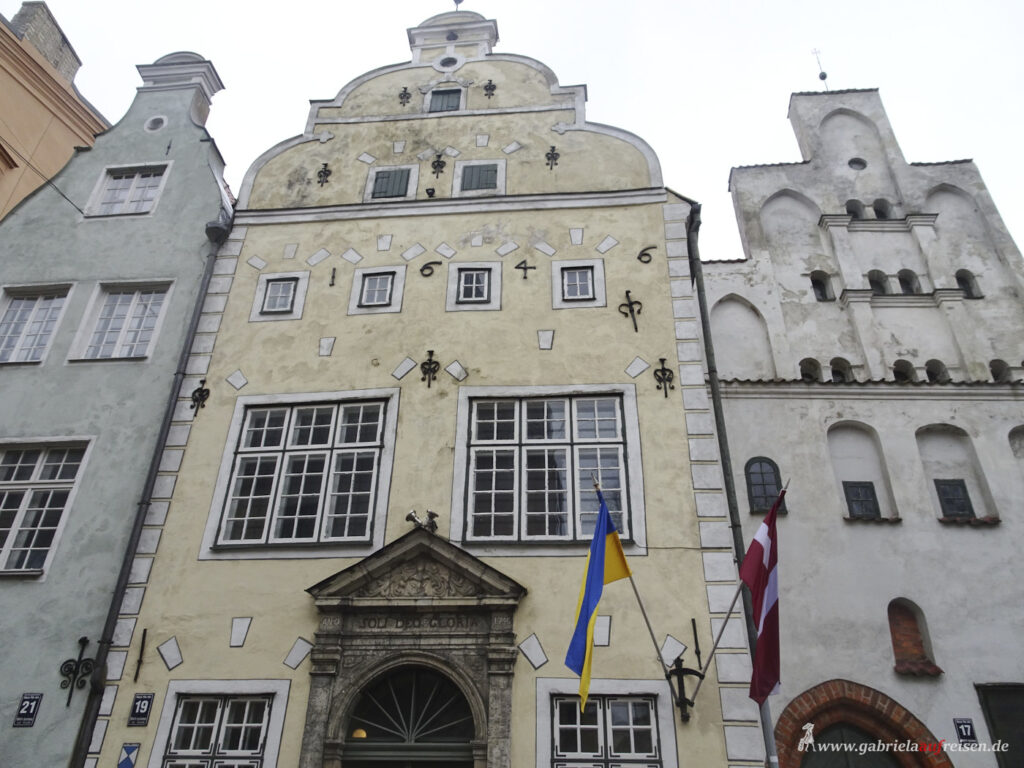
Quickly we continue to the Town Hall square with the beautiful “Schwarzhäupterhaus”. (Blackheads House)
Meanwhile, we are all totally soaked and at around 6 degrees Celsius this is no pleasure. It’s Sunday and the many closures caused by the pandemic have not yet been overcome. Nobody really wants to go sightseeing anymore, so we are looking for a café where we can warm up and dry a little. Not an easy thing.
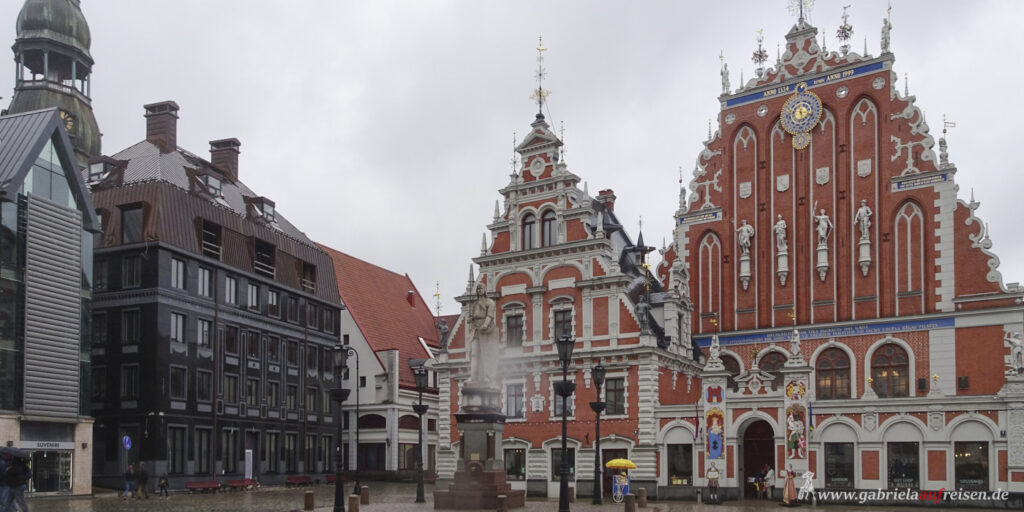
Riga Central Market
After a coffee break, warmed up and only slightly damp, we walk quickly to the stop of our bus, which takes us to the Central Market of Riga. This huge market is situated, with around 3000 stalls inside and outside, inside the former Zeppelin Halls. Every day, up to 100,000 shoppers come here to stock up on fresh goods and everyday things. We are invited for lunch, so we can taste many typical Latvian specialties. Of course, the vodka should not be missing afterwards.
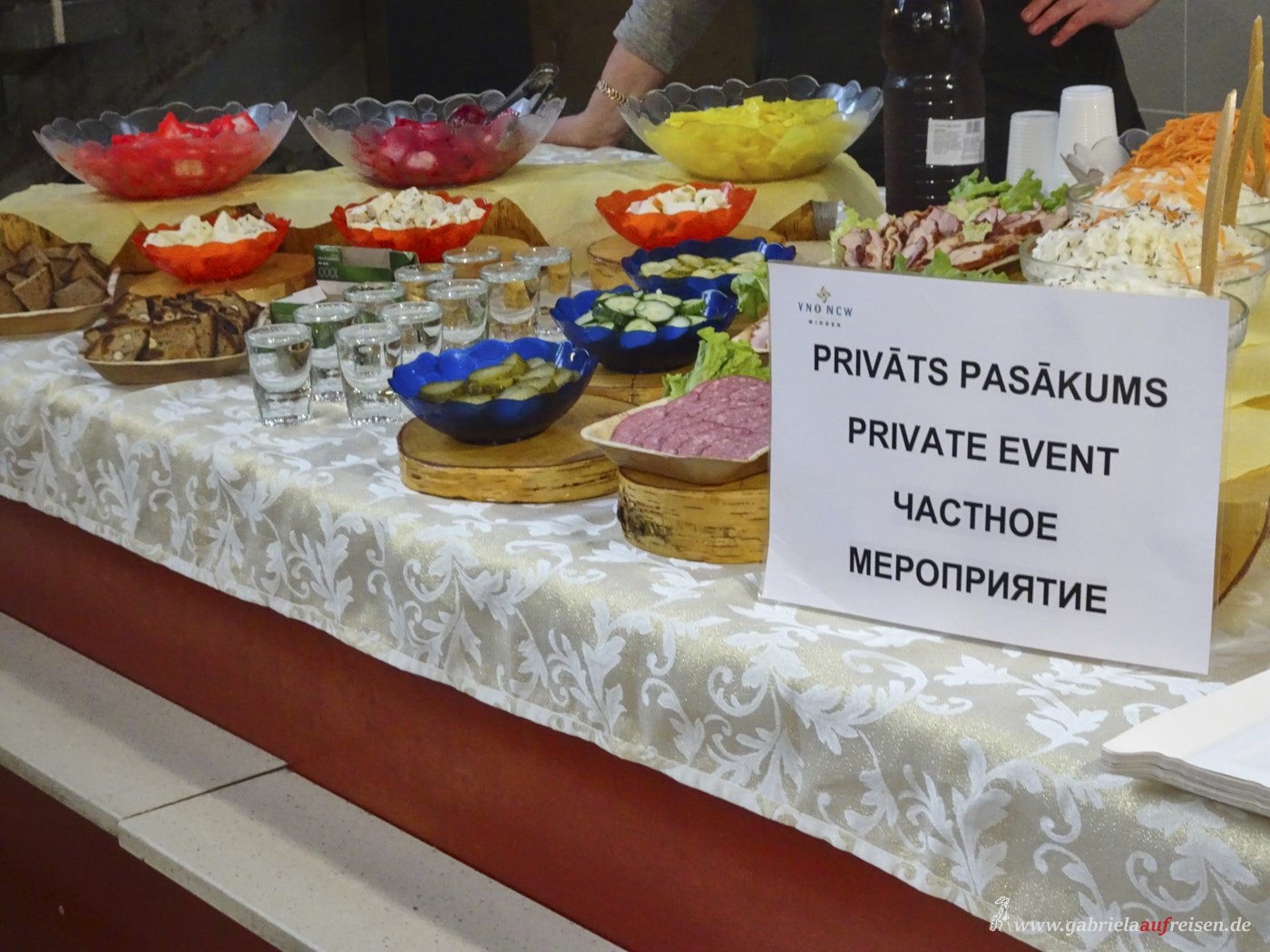
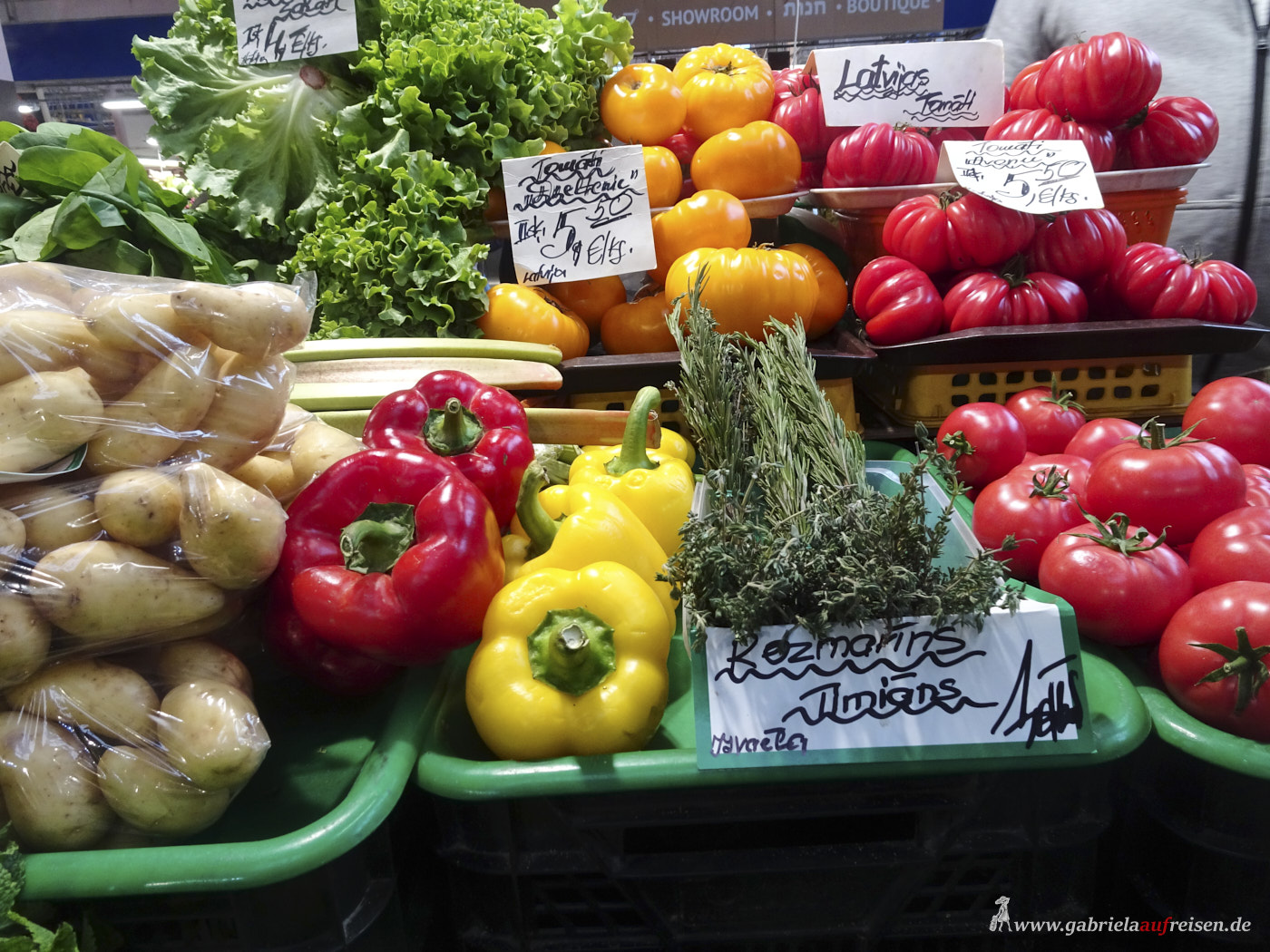
Surely you could spend several days on the beautiful city of Riga to marvel at all the museums, churches and sights. Unfortunately, we don’t have the time because it goes on to the
Gauja National Park in Latvia
The Gauja National Park, the primeval river valley of the river Gauja, can also be discovered very well by canoe if you have much more time.
With my customers I walk a bit along the river Amata, which later flows into the Gauja . The exact hike can be found on Komoot.
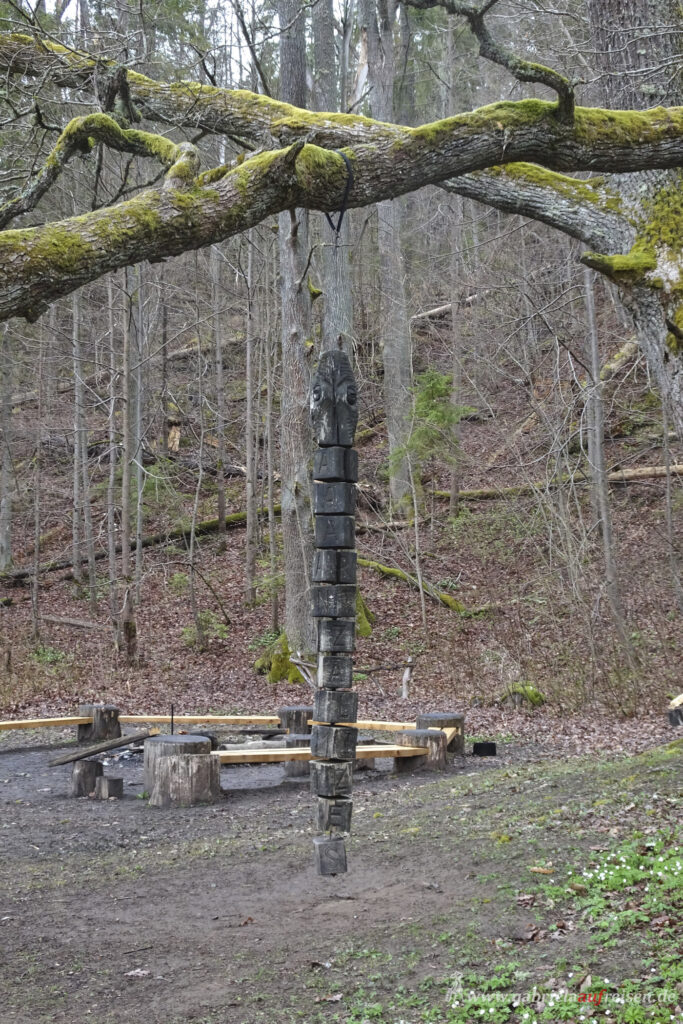
Already here I am very impressed by the deep cuts that this small river has driven into the riverbanks. Steep banks that show their different compositions, whirlpool holes and caves, we see everything on our short hike. Large parking lots show me that it is certainly not as quiet here during the short summer season as it is today.
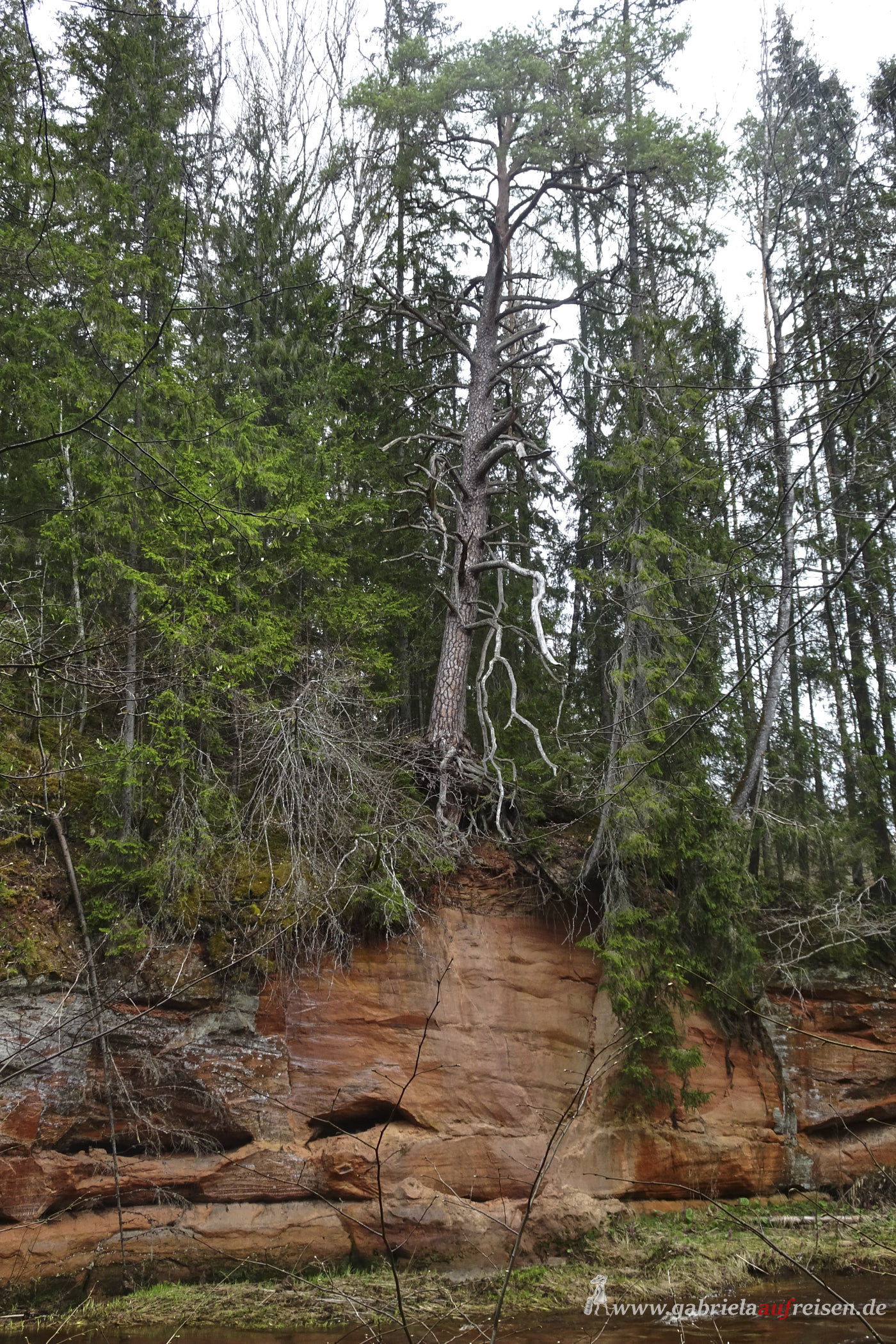
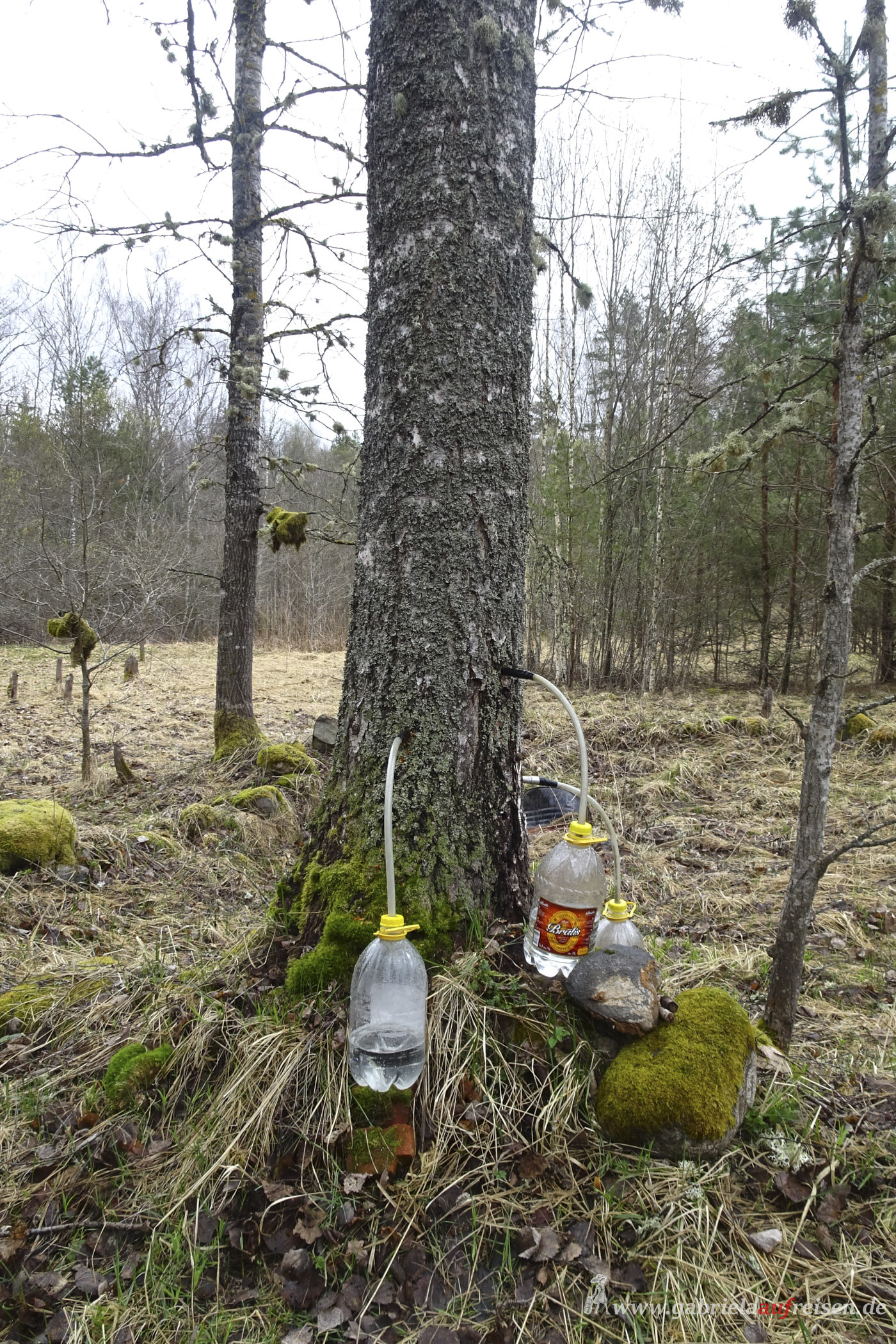
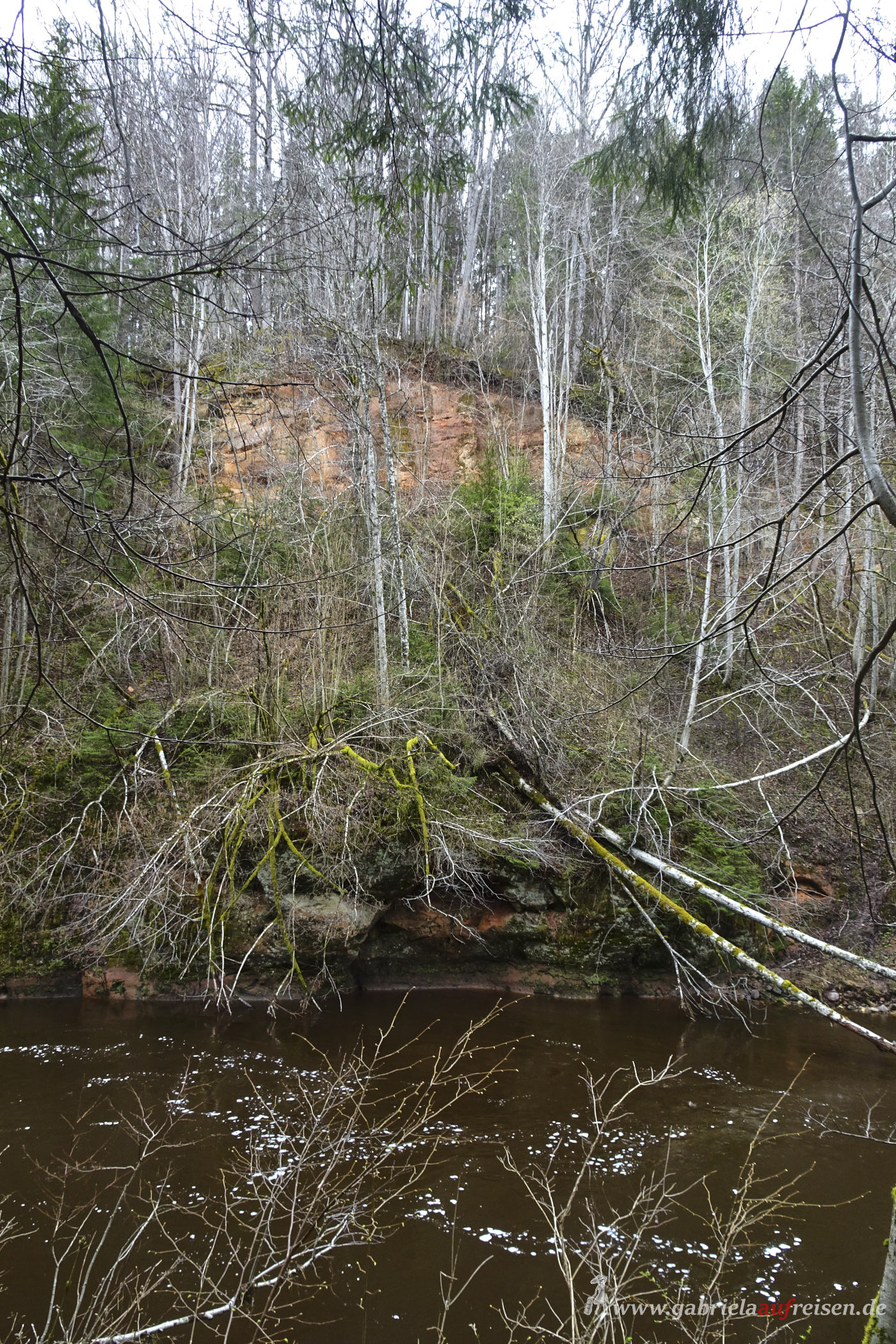
The national park is divided into five zones, which may be visited and managed differently. There are very protected regions that are not allowed to be entered at all.
In the middle of the national park lies the small town
Cesis
In the middle of the small town, the still very imposing remains of the Livonian castle can be visited in a small park. Unfortunately, we cannot visit it as it is still closed. Also this city is already 800 years old and very pretty to look at with its partly still very old houses. The tower of St. John’s Church watches over the old town. We stroll a little through the alleys, as you can see here on Komoot.
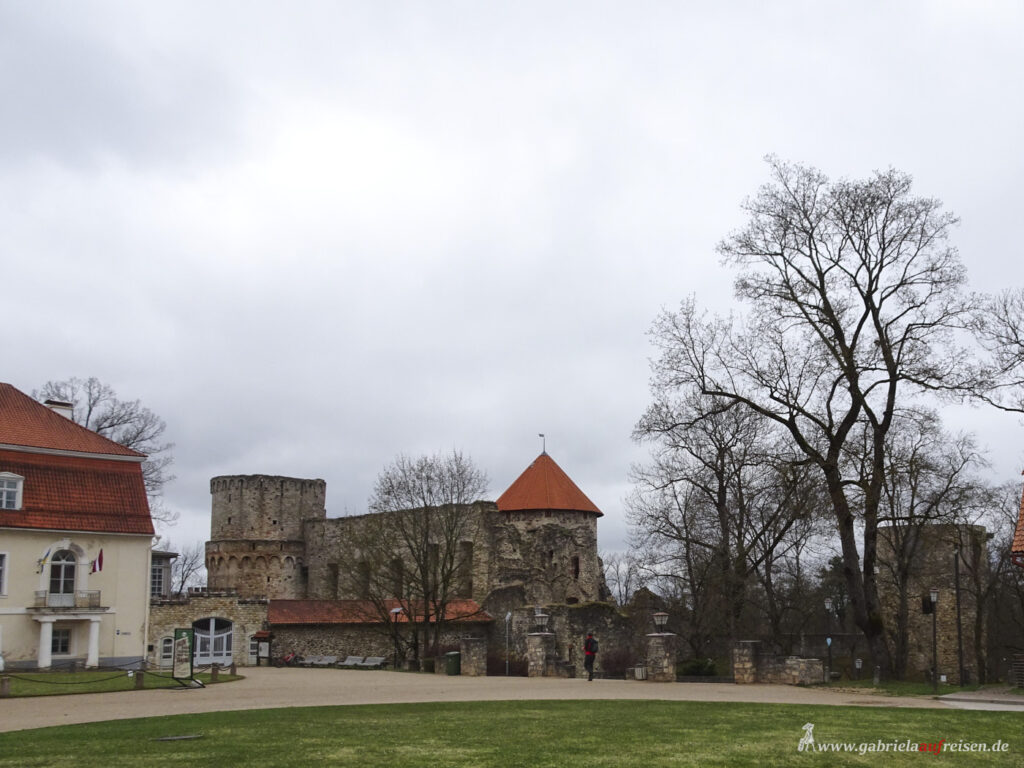
After the hike in the morning and our city tour, we are all hungry.
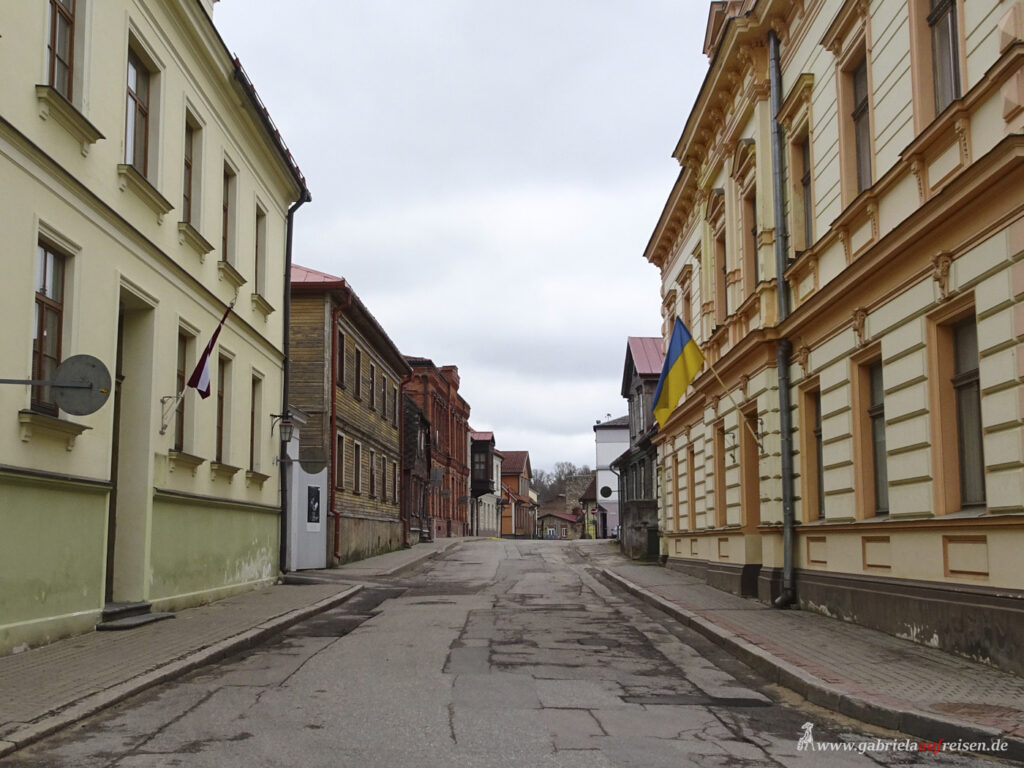
On a farm
After a short ride on the bus, we reach an old farm, where traditional wooden roof shingles are still made on a self-made machine. Many Latvians have their roofs covered in such a way and so the craftsman is well booked.
Then the lady of the house, dressed in a Latvian costume, asks us to the wooden house. Latvian delicacies are already available for us at a long table.
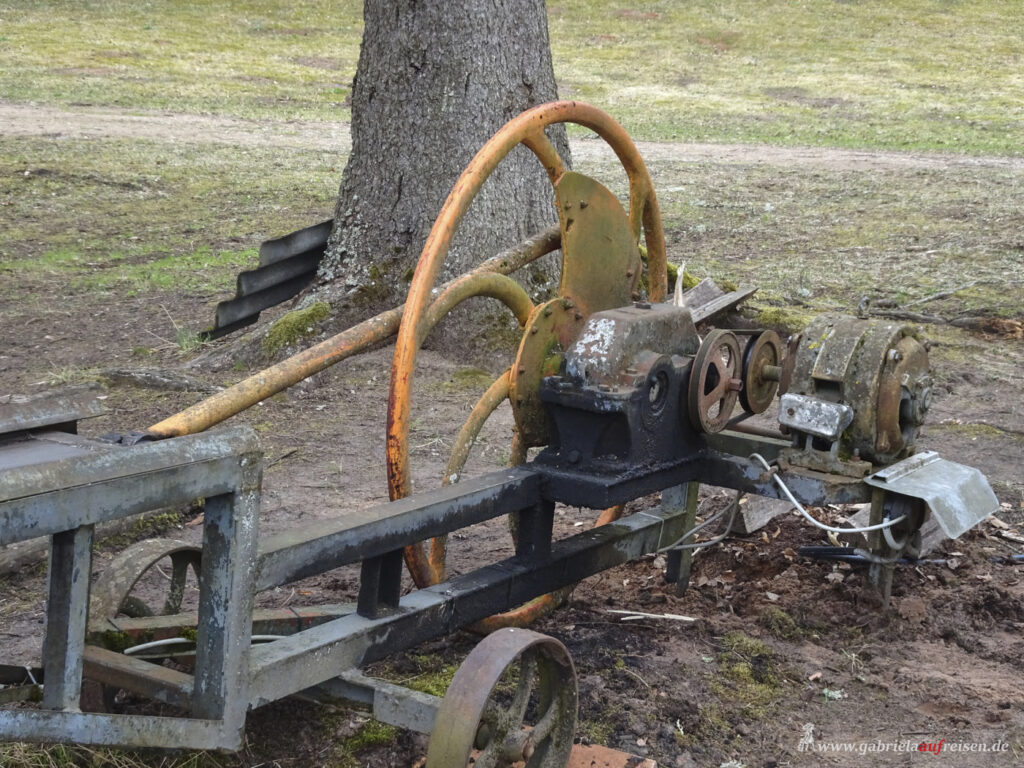
Everything from domestic production. That´s whyy vegetables and beetroot should never be missing in a traditional dish, homemade juices, meat from the grill and from the stew. Honey from their own production is eaten here with fresh cucumbers. An idiosyncratic mixture, but delicious! For dessert we are invited to the campfire outside. We are allowed to make our own dessert again. This time it’s stick bread! If it is well baked, a large blob of honey will be put inside, accompanied by hazelnuts. This is a real treat!
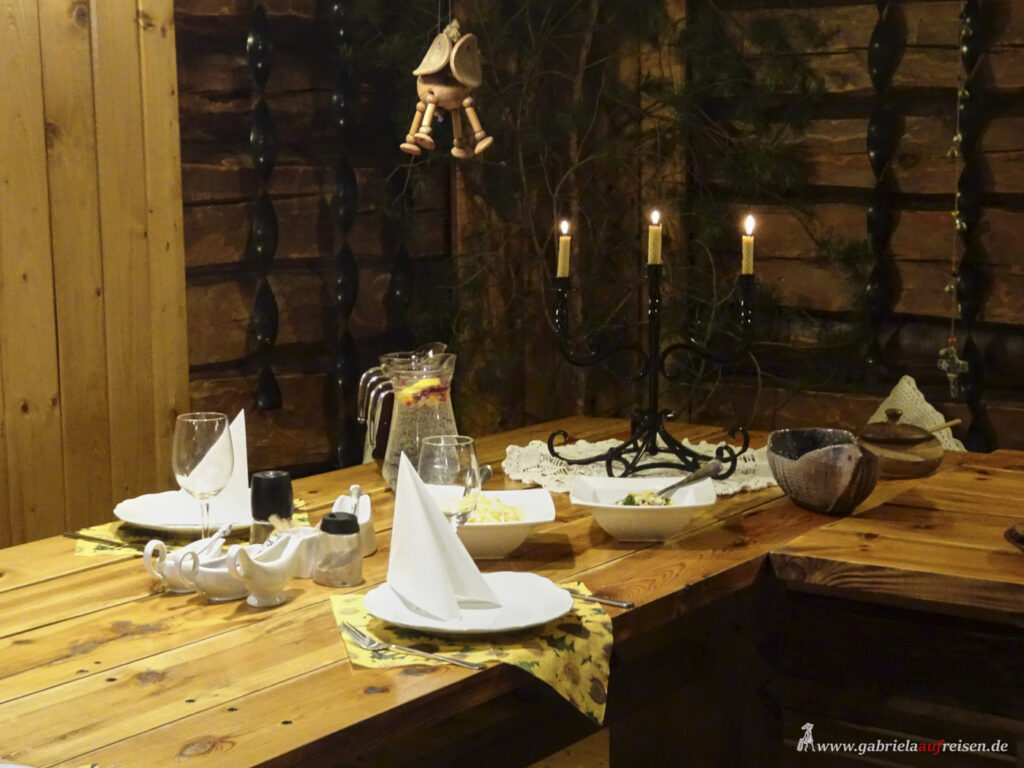
There is still a long way to go, because tonight we will already be in Estonia.
I’ll report on this in my next blog post. You missed the first part, my report on Lithuania? Then just look here.
More information, current pictures etc. can always be found on my sites on Facebook, Instagram and Pinterest. I am happy about your comments and “likes” here and there.
Follow me!
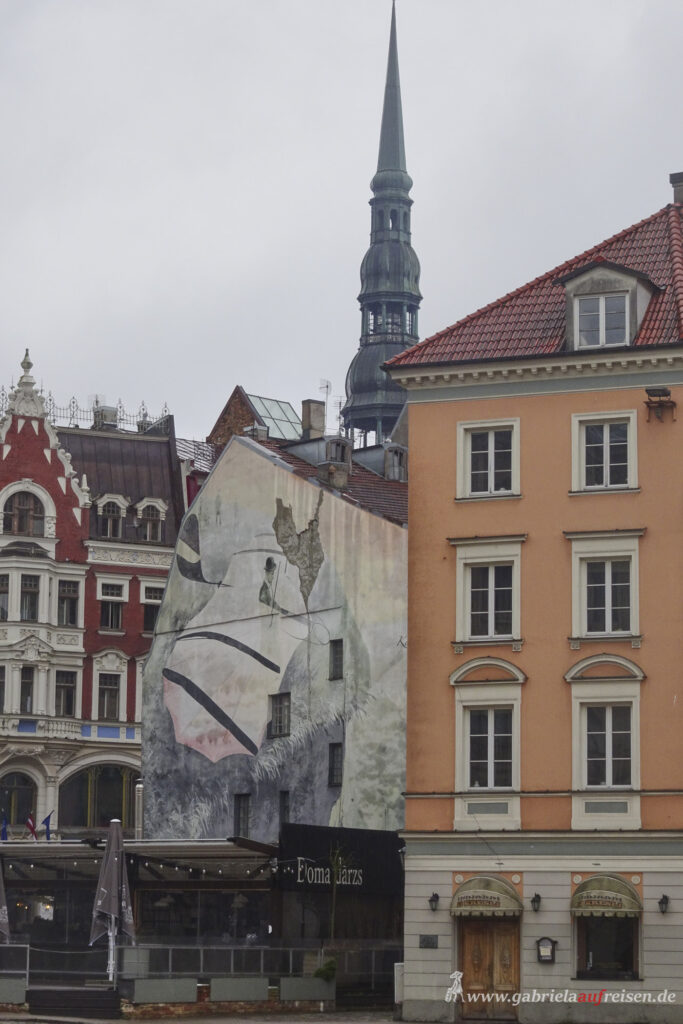
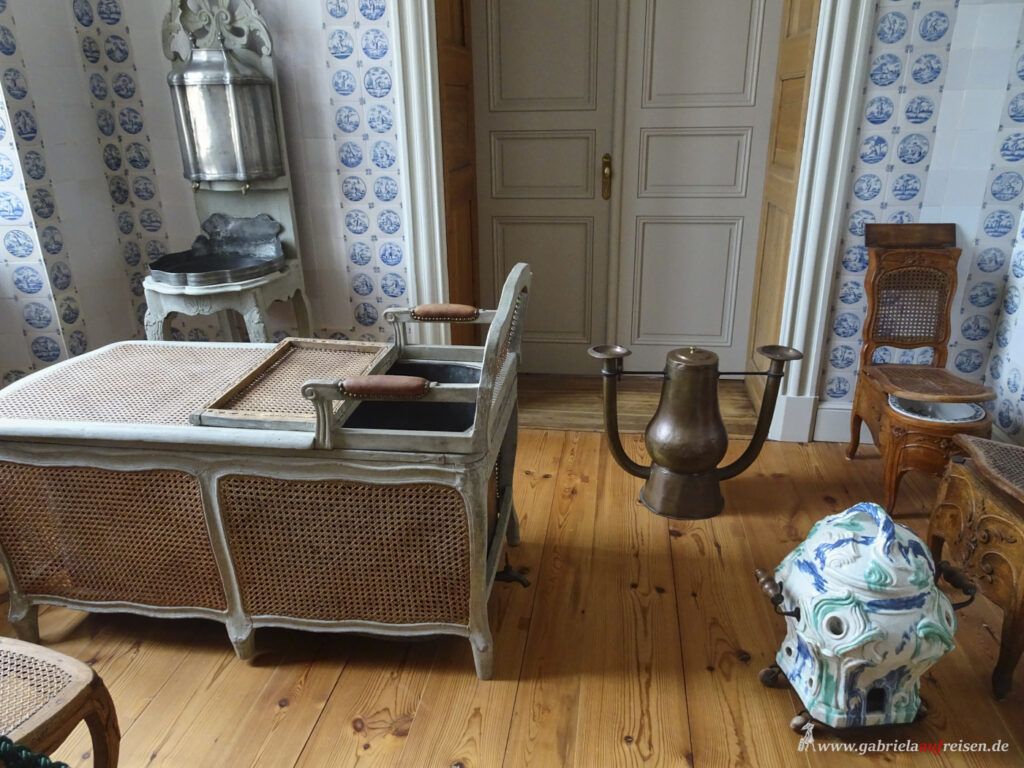
!– GetYourGuide Analytics –>
Be First to Comment